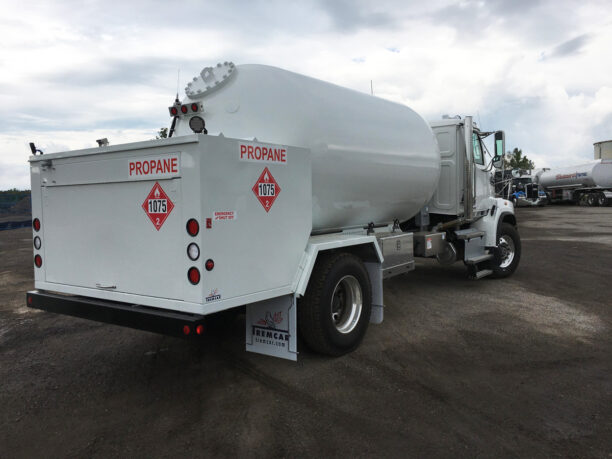Fleet Management Strategies for Efficiency and Cost Reduction

Efficient fleet management is paramount to ensuring timely deliveries, maximizing fuel efficiency, and ultimately, driving profitability. As propane remains a vital energy source for residential, commercial, and industrial applications, propane delivery businesses must adopt strategies to optimize their fleet operations, reduce costs, and enhance fleet management. These strategies include:
Utilizing Advanced Routing and Scheduling Software
Investing in advanced routing and scheduling software can significantly streamline fleet operations for propane delivery businesses. These software solutions leverage algorithms to optimize routes, minimize fuel consumption, reduce driver idle time, and ensure on-time deliveries. By implementing such software, propane businesses can achieve greater efficiency in route planning, leading to cost savings and enhanced customer satisfaction.
Implementing Telematics and GPS Tracking Systems
Telematics and GPS tracking systems provide real-time visibility into fleet activities, allowing propane business owners to monitor vehicle locations, track driver behavior, and identify opportunities for operational improvements. These systems also enable proactive maintenance scheduling, helping to prevent breakdowns and reduce vehicle downtime. By harnessing telematics technology, propane businesses can enhance fleet safety, efficiency, and performance.
Adopting Fuel Management Strategies
Fuel costs constitute a significant portion of operating expenses for propane delivery businesses. Implementing fuel management strategies, such as optimizing fuel purchasing, monitoring fuel consumption, and reducing idling time, can lead to substantial cost savings. Additionally, investing in fuel-efficient vehicles and alternative fuel technologies, such as propane autogas, can further reduce fuel expenses and environmental impact.
Emphasizing Driver Training and Safety Protocols
Effective driver training programs and adherence to safety protocols are essential components of fleet management for propane delivery businesses. By providing comprehensive training on defensive driving techniques, propane handling procedures, and regulatory compliance, businesses can mitigate risks, prevent accidents, and ensure the safety of both drivers and customers. Promoting a safety-first culture among drivers reinforces the importance of safe driving practices and enhances overall fleet performance.
Implementing Preventive Maintenance Programs
Regular maintenance is crucial to keeping fleet vehicles operating at peak performance and minimizing costly repairs. Establishing regular maintenance routines, such as changing oil, rotating tires, and upgrading parts, helps vehicles last longer and avoids unexpected breakdowns. By staying proactive with maintenance schedules, propane businesses can reduce downtime, improve reliability, and extend the longevity of their fleet assets.
In the competitive arena of propane delivery, optimizing fleet management is essential for business success. By continuously refining fleet management practices, propane business owners can position their companies for long-term growth and profitability in the dynamic energy sector.














